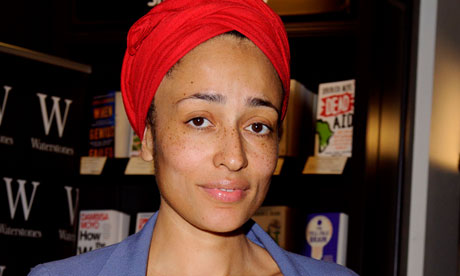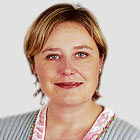
Zadie Smith's novel NW has been overlooked
for awards, but is on the longlist for the Women's prize for fiction.
Photograph: Jonathan Hordle/Rex Features
They did it. It's difficult
to see how they could have done otherwise; then again, the book is so big these
days it comes with its own weather system. The time approaches, of course, when
Bring
Up the Bodies will no longer be in contention for further literary awards –
but with Hilary
Mantel last week adding the David Cohen prize, given for an entire oeuvre,
to her Costa and Booker wins for her most recent novel, it has not yet arrived.
And now the judges of this year's Women's prize for fiction – hitherto known as
the Orange prize – have raised the possibility of her having to clear yet
another space on her, erm, mantelpiece.
She has pretty stiff
competition, though: from previous winners Barbara Kingsolver
and Zadie Smith, for example. Smith might have
particular reason to feel that NW, her highly ambitious and accomplished novel
of London life, has thus far been oddly overlooked. They are joined by other
well-known names: Kate
Atkinson, whose Life After Life is one of the most striking and substantial
of this year's releases so far, and the reliably original AM
Homes with her sixth novel, May We Be Forgiven. Also on the list is Gillian
Flynn's Gone Girl – already a huge word-of-mouth bestseller.
But longlists are always
more interesting for those who are not mentioned and for those with whom we are
less familiar. This year we could have seen Pat Barker, previous
winner Rose
Tremain, Toni Morrison, Anne Tyler, Nicola Barker,
Maggie
O'Farrell, the Man Booker-shortlisted Alison Moore and Deborah Levy,
and JK Rowling,
who last year published her first novel for adults, on the list. But the sheer
variety of those omissions gives little clue which sort of titles will be
favoured.
The new names, however, do
suggest an impressive appetite for different kinds of fiction. There is Canadian
writer Sheila
Heti's self-referential, genre-twisting How
Should a Person Be?, which blends fiction and memoir; Ros
Barber's novel-in-verse about Christopher Marlowe; a debut novel by Israeli
writer Shani
Boianjiu about a group of young women conscripted into that country's army;
and another debut, Alif
the Unseen, by the American G Willow Wilson, which adds a singular dash of
science fiction and Islamic theology to the list.
More:
BBC
Telegraph
Independent
The Bookseller

No comments:
Post a Comment